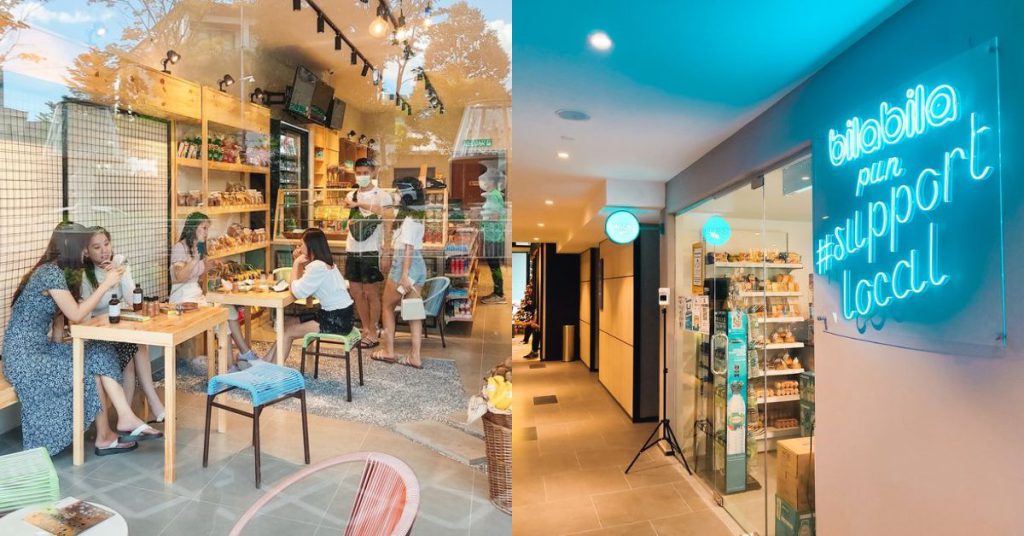It’s only natural that one of the convenience stores that I frequent the most is BilaBila Mart, since I live very close to one.
But it’s not just the proximity that has made a regular customer out of me. Rather, it’s the fact that it offers convenience, variety, and novelty—plus it mainly features smaller, homegrown brands.
A few businesses I’ve written about, in fact, have been inspired by my perusing the shelves of my local BilaBila Mart.

Recently, I was able to chat with Lee Hui Jing, one of the three co-founders behind the chain. Having led the business for the past four years, Hui Jing also has a wealth of other experiences that has informed her current role.
Here are some of the top insights I gained from her entrepreneurial playbook.
Sales targets should be team-based
Having worked many different jobs in the past, Hui Jing has learnt from one of her past experiences that when outlets provide incentives based on individuals’ performances, it can lead to a negative culture.
“It will affect the harmony of the entire team,” she explained.
Rather than individual targets, she believes that team targets will help foster teamwork and camaraderie amongst employees.
Clearly segregate your responsibilities
Prior to BilaBila Mart, Hui Jing had actually gone into business with other people. It was through those experiences that she realised how important it is for each partner to know what their roles are.
She shared that arguments may not be unavoidable still, but at least these arguments tend to be conducive.
Localise your stores
Expanding BilaBila Mart to 50 outlets doesn’t mean just copy and pasting what works in one location and applying it somewhere else.
Hui Jing explained that the team looks at the demographic of each location and actually caters to that audience.

For example, in areas that may have more Chinese expats, they may carry products specific to the country and palate.
There are also fully halal outlets of BilaBila Mart (which sells products such as pork and wine in other stores), typically located in more rural Malay communities.
Another example of localisation is through branding.
“If you are observant enough, you’ll see that BilaBila have many versions of signboards,” Hui Jing revealed.

Hui Jing shared that initially, the team had used signages that emulated the old-school, nostalgic designs of sundry shops.
However, as they ventured into communities like Mont Kiara where there are more expats who may not get the reference, they decided to come up with a cleaner, modernised design.
Come up with replicable formats
As a business grows, though, it may be difficult or time-consuming to keep catering to specific demographics.
To streamline this process, Hui Jing said the team has come up with different categories of stores and formats to rely on.
For BilaBila Mart, they have four main formats depending on the location—residential, hospitality, education, and tourist locations. Within residential itself, there are the fully halal options or expat-heavy areas.
Do first, then see how
As someone who has been in the corporate world, Hui Jing understands how it’s possible to fall into something she calls “analysis paralysis”.
That means spending a lot of time analysing ideas without ever really executing them. For Hui Jing, she believes in doing first, then only seeing the risk. Of course, as a business leader, she does look at the financial exposure. As long as it is somewhat reasonable, she goes for it.

“If we don’t jalan, we won’t be able to experiment [and find out] what is right or wrong,” she reasoned.
Being agile takes practice and courage, but Hui Jing believes that since their business was born during the pandemic, they are very used to making pivots today.
See problems as opportunities
“If it’s not a life-or-death issue, it means your problem is small,” Hui Jing told me at one point, believing that some people fall into the trap of being too caught up with small problems.
She also shared that she sees many fellow entrepreneurs looking at challenges as just challenges, while she believes in seeing challenges as opportunities. This may mean opportunities for improvements, growth, or even pivots.
“When you see the benefit in things, you’ll work to solve issues,” she advised.

For example, when BilaBila Mart first opened, a major obstacle they faced was the pandemic. Instead of seeing it as a problem, they pivoted to promote relevant products like masks and sanitisers on Instagram and start providing delivery services.
This kind of mindset is not only apparent in BilaBila Mart’s growth despite being hit by the pandemic two days into their launch, but also Hui Jing’s own journey—which you can read more about here.
- Learn more about BilaBila Mart here.
- Read other articles we’ve written about Malaysian startups here.
Featured Image Credit: BilaBila Mart









